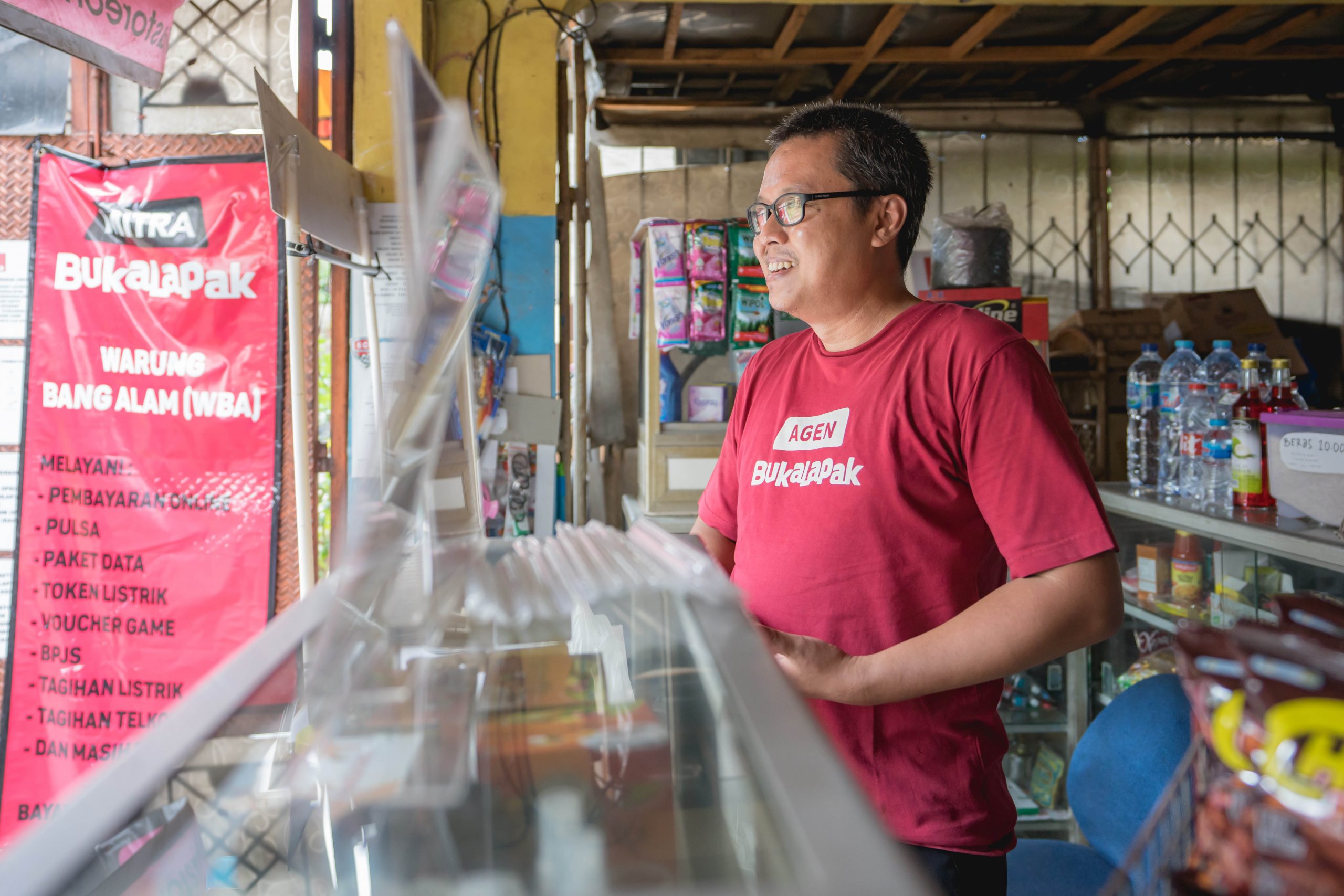E-commerce unicorn Bukalapak is set to go public on the Indonesia Stock Exchange, IDX, at the end of July. It will be the first e-commerce company to go public in Indonesia.
Despite consistently being one of the top five most visited e-commerce sites in Indonesia, Bukalapak can’t seem to match up to Tokopedia and Shopee. Bukalapak’s monthly visits reached 34.17 million in the first quarter of 2021, according to iPrice, well below Shopee’s 127.4 million and Tokopedia’s 135 million visits on their sites in the same quarter.
As a third-place contender in Indonesia’s burgeoning e-commerce sector, Bukalapak may struggle to exert pricing power over its merchant base. With take rates—fees charged by a marketplace on transactions performed by third-party sellers or service providers—being the field’s primary mode of monetization, it is unlikely for Bukalapak to charge more than its more popular competitors, according to Patrick Stokvis, vice president at investment research firm Third Bridge.
“Tokopedia’s key competitive advantage is in its localization strategy, having the highest traffic in Indonesia across all e-commerce platforms. Shopee’s brand popularity largely stems from its aggressiveness when it comes to user incentives such as discounts and promotions,” said Stokvis. Lazada, which lags behind Bukalapak in visitor traffic, has an advantage in logistics with the expansion of its warehouse footprint and fulfillment capabilities.
After operating for 11 years in e-commerce, in order to catch up with the competition, Bukalapak is tapping into tier-2 and tier-3 regions where digital adoption is slower than in metropolitan locales. In particular, its Mitra Bukalapak program digitizes the operations of micro-retail stores and warungneighborhood kiosks.
In its presentation to IDX, Bukalapak claimed to be the “dominant e-commerce platform beyond tier-1 regions” and the “number one mitra network in Indonesia.”
Bukalapak’s total processing value (TPV) was USD 6 billion in 2020, with 70% generated beyond tier-1 regions. Mitra Bukalapak accounted for 27% of the firm’s overall TPV, and it had 6.9 million registered micro-retail partners as of December 2020. On average, kiosk partners experienced tripled growth in sales after joining the program, according to data cited in the presentation.
“Even though the business-to-business and online-to-offline strategies are not new to the market, Mitra Bukalapak was the first horizontal e-commerce marketplace to enter the segment, paving the way for this to become a key differentiator for Bukalapak going forward,” said Stokvis.
Tokopedia CEO William Tanuwijaya told local media last year that his company has 8.6 million micro, small, and medium enterprise (MSME) partners, but it is unclear how many operate in O2O spheres. Last year, Gojek launched a similar program called GoToko.
“With strong momentum in onboarding warung, Mitra Bukalapak has established a solid competitive positioning in the Indonesian B2B e-commerce landscape and may be on its way forward, forging a first-mover advantage in the segment,” Stokvis said. While Mitra Bukalapak’s active user base appears to be larger than Mitra Tokopedia at the moment, this may change once Tokopedia and Gojek merge their respective O2O business and user base.
Bukalapak recorded a loss of IDR 168 billion (USD 12 million) in 2020, the company said in its IDX presentation, so the company needs to find a clear path to profitability to gain investors’ trust once it goes public. “Some common products sold at traditional kiosks are cigarettes and canned food—competitive segments that generally bear thin margins. Combined with the fact that Mitra Bukalapak’s GMV growth is still dependent on price competitiveness against the offline B2B market, the path to profitability remains unclear,” Stokvis said.
Meanwhile, Bukalapak is shoring up its fintech offerings. After Shopee and GoTo, Bukalapak is in the process to launch a digital banking platform in partnership with Standard Chartered Bank. Recently, Bukalapak launched a new investment platform called BMoney through its fintech subsidiary, Buka Investasi Bersama.
Read this: GoTo will invigorate Indonesia’s stock market, but may need organizational restructuring, experts say
